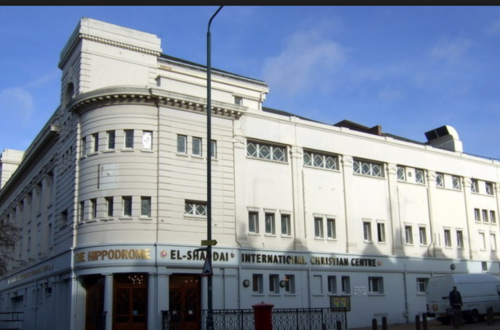A bakery in Rome recently displayed a sign announcing that Roma (or gypsies) were strictly prohibited from entering. This outraged many, including Italian Jewish leader Renzo Gattegna:
The “shameful sign evokes in a worrying way the darkest period of our history” Renzo Gattegna, president of the Union of Italian Jewish Communities, said in a statement Thursday. “Even if this is an isolated incident, we cannot, as Italian Jews, remain silent in face of these racist gestures.”
In the UK, passengers on a London Midland train were surprised by an announcement telling them to ‘be aware of pickpockets and gypsies’ when they stopped at Telford.
Damian Le Bas, editor of the Travellers Times magazine, said: “In the first instance this is very likely to offend many Romany Gypsies, who are protected under the Race Relations Act of 2004.
“I don’t agree with the use of certain words being banned but it is an ethnic word and to juxtapose it with pickpockets, which suggests criminality, is very offensive.”
In Ukraine, some nationalists are targeting the Roma:
The most recent anti-Romani provocation took place 10 days ago on 15 March in the village of Velika Dobroň in Uzhgorod district.
A concert by the popular Romani singer Notar Mary was being given at the local Sting cultural club in the village. Romani people from all over the district planned to attend and chartered several buses to take them there.
An unpleasant surprise awaited them at the scene. Several well-muscled youths stood at the entrance to the club and practiced their own peculiar band of racist identity checks.
The bouncers only let in ethnic Ukrainians. “We are not letting Roma inside,” was their curt explanation.
A Finnish-Romani expert on Roma issues, Diana Nyman, was refused entry to the breakfast room of Stockholm’s Sheraton Hotel.
Nyman, who wears a traditional wide black skirt and frilly blouse and who recently fielded questions about beggars in an online chat, said she was almost knocked over by a staff member who rushed to bar the Roma expert and speaker from entering the breakfast room.
“Even after I had showed that I’d paid for breakfast the staff insisted that I stay in the lobby,” Nyman told the Dagens Nyheter newspaper (DN) on Tuesday. “They got me coffee so I could drink it there instead.”
A spokesperson for Integration Minister Erik Ullenhag said the incident would lead his office to “revise” its policy of offering invited guests to stay overnight at the Sheraton.
The hotel has now issued an apology, although there is some disagreement over the incident, and the possibility of a misunderstanding, rather than deliberate discrimination, cannot be ruled out.
We hear a fair amount about Roma being sent back to their original homes from countries such as France. Perhaps more worrying is the clampdown on Roma trying to leave their own countries. They are subjected to disproportionate scrutiny over their means and motives:
90% of the ERRC’s documented cases show that only Roma were asked for evidence to justify why they were travelling (i.e. in cases when Roma and non-Roma were travelling together). Furthermore, 60% of Roma involved in these cases were told by the border officials that they (the border officials) were instructed to restrict the rights of the people concerned. It appears that they were ‘instructed’ to act based on race. 30% of those Roma concerned were told explicitly by the border officials that they can not cross the border due to their ethnicity, that is, they were explicitly told that they can not cross the border because they are Roma.
Here’s a link to a recent article which examines the threat to human rights posed by such restrictions on migration


